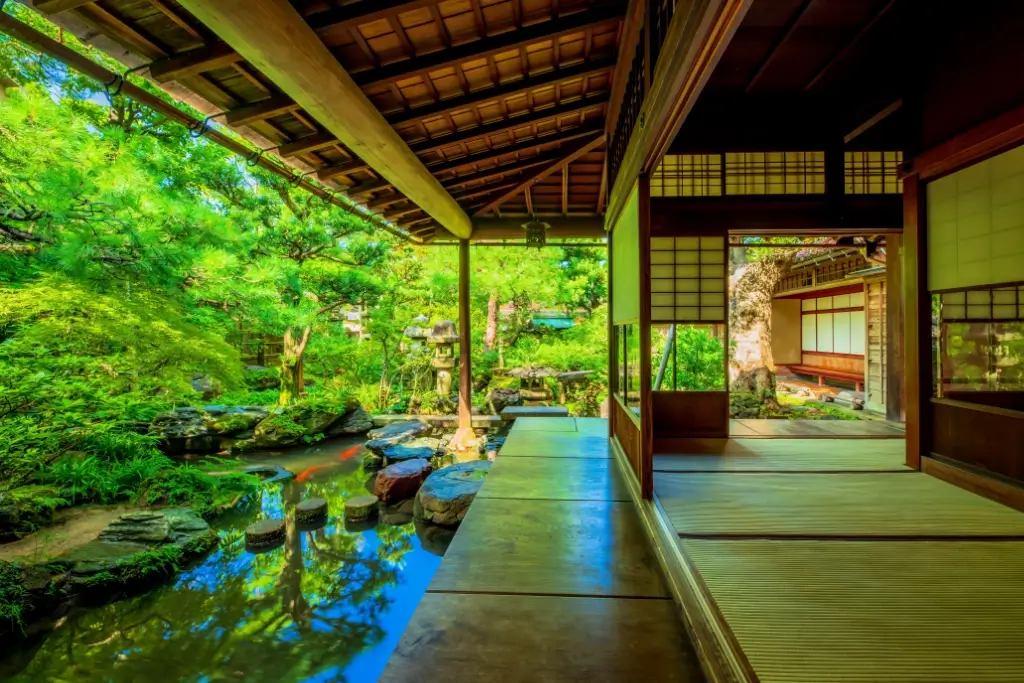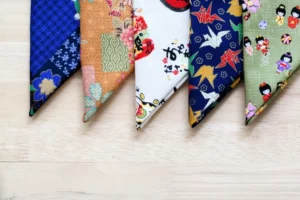Ishikawa is a prefecture located in the Chubu region of Japan, a wonderful area in the western part of the country. If you love handcrafted ceramics and exquisite gold leaf art, this is the perfect destination for you. With its rich history, traditional craft villages, and valuable artistic heritage, Ishikawa offers a diverse and exciting experience for travelers. Not to mention, it is home to many natural hidden gems that spark excitement and curiosity. So, join us as we explore five must-visit locations in this prefecture!
Table of Contents
ToggleKaga City
Kaga City, nestled in the southwestern part of Ishikawa Prefecture, is a charming destination known for its beautiful natural landscapes and hot springs. It sits between the Sea of Japan and the dramatic peaks of the Hakusan Mountain Range, offering stunning views and various outdoor activities. Historically, the area was part of the ancient Kaga Province. It became a city in 1958 by merging several towns and villages, including Daishoji, a castle town during the Edo period (1603-1868).
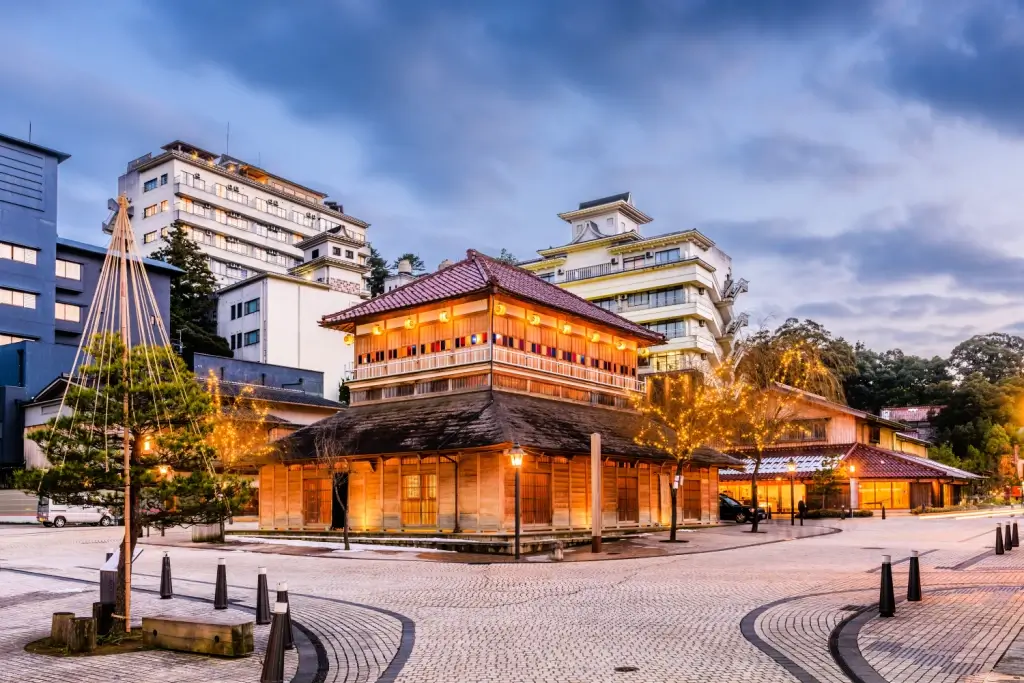
As for onsen (hot springs), visitors can also enjoy a relaxing soak in one of four distinct hot spring villages: Katayamazu, Yamashiro, Yamanaka, and Awazu. Each village has its delights. Katayamazu Onsen rests by a quiet lagoon, while Yamashiro Onsen has baths with old-fashioned decorations. Yamanaka Onsen is in the mountains, beloved for its incredible views and crafts like lacquerware. Last, Awazu Onsen is home to Natadera Temple, a peaceful place to visit before relaxing in the hot springs.
The city is also famous for its rich cultural heritage, notably traditional crafts such as Kutani-yaki ceramics. You can learn about it at the Kutaniyaki Art Museum in Daishoji. Plus, seafood lovers will enjoy visiting Hashitate, a nearby fishing town known for its fresh winter snow crab, one of the most popular local delicacies.
Kanazawa City
Kanazawa City is the capital of Ishikawa Prefecture. Surrounded by the Japan Alps and national parks, the city has rivers running through it, giving it a peaceful and scenic vibe. The Sai River is considered solid and lively, while the Asano River is gentler and sweet. One of the city’s top attractions is Kenrokuen Garden, filled with ponds, trees, and flowers that change with the seasons.
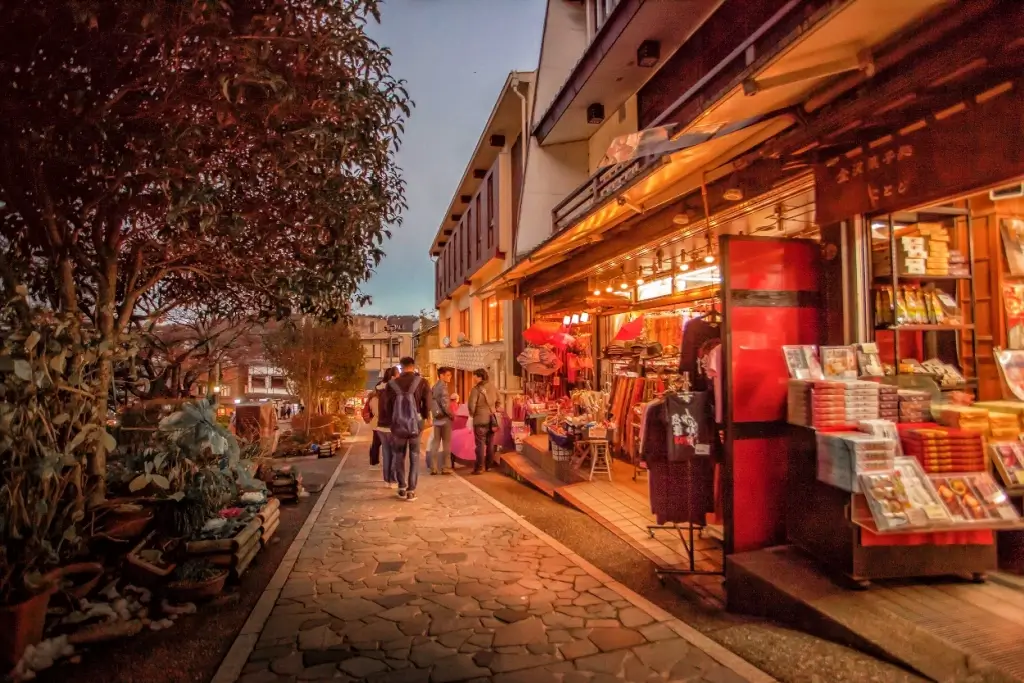
In the past, Kanazawa was ruled by the powerful Maeda Clan during the Edo period. The Maeda family helped the city flourish. Many artists and craftsmen were invited here to create stunning works of art. Some famous local crafts include pottery, lacquerware, and gold leaf. You can still see the influences of these crafts today in the city’s shops and museums.
Kanazawa’s historic charm is also present in its old samurai and geisha districts, such as the Nagamachi district and Higashi Chaya. These areas have preserved traditional wooden houses, where you can stroll through narrow streets. At the same time, modern sights in Kanazawa stand out with places like the 21st Century Museum of Contemporary Art.
Are you looking for quality snacks from places like Ishikawa Prefecture? Sakuraco delivers traditional Japanese snacks, sweets, tableware, and more from local Japanese makers right to your door, perfect for a pleasant snack time at home!
Gold Leaf Museum
The Gold Leaf Museum is a fascinating place to explore the world of gold leaf, a craft that Kanazawa is famous for. In 1974, the museum was established by Yasue Takaaki, a skilled gold leaf artisan. Today, it is in the heart of Kanazawa’s historic Higashiyama area, which has been linked to gold leaf production for centuries. Visitors come from all over to discover the history and techniques of gold leaf making.
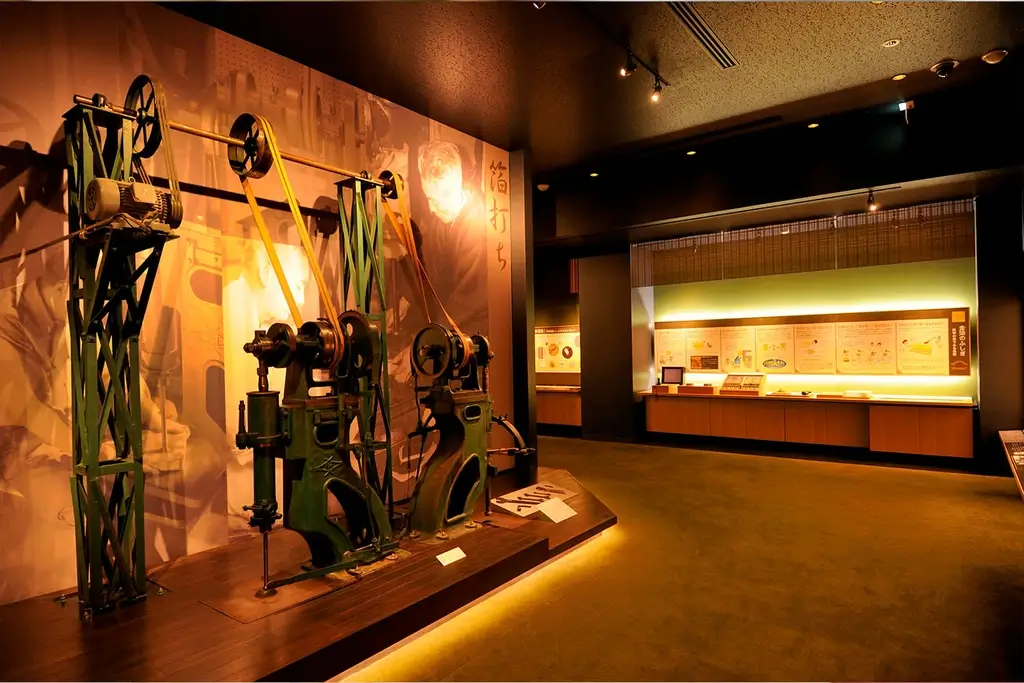
The museum shows many gold leaf artworks, such as intricate folding screens, theater costumes, and decorated Kutani porcelain. Here, you’ll have a chance to watch videos showing how gold leaf is made. The exhibits also explain how the tools and paper used in this delicate process are crafted. The museum’s second floor stands out with the display of a gorgeous Buddhist family altar covered in gold leaf. There’s even a Miniature Gold Leaf Laboratory where 100 sheets of gold resemble shimmering, transparent panels.
In 2024, the museum announced several closing days, including the second half of September and some days in October. Before planning your visit, it’s important to check their website for updated opening hours.
Yamanaka Onsen
Yamanaka Onsen is a charming hot spring village situated in the mountains of Kaga. Kiku no Yu is one of the well-known bathhouses in the center of town. This picturesque town‘s hot springs were discovered by the monk Gyoki. Surrounded by magnificent natural beauty, Yamanaka Onsen offers more than just soothing waters. One of the highlights of Yamanaka Onsen is its lively cultural scene. On weekends and holidays, you can enjoy traditional performances of the Yamanaka-bushi folk song by geisha at the Yamanaka-za theater.
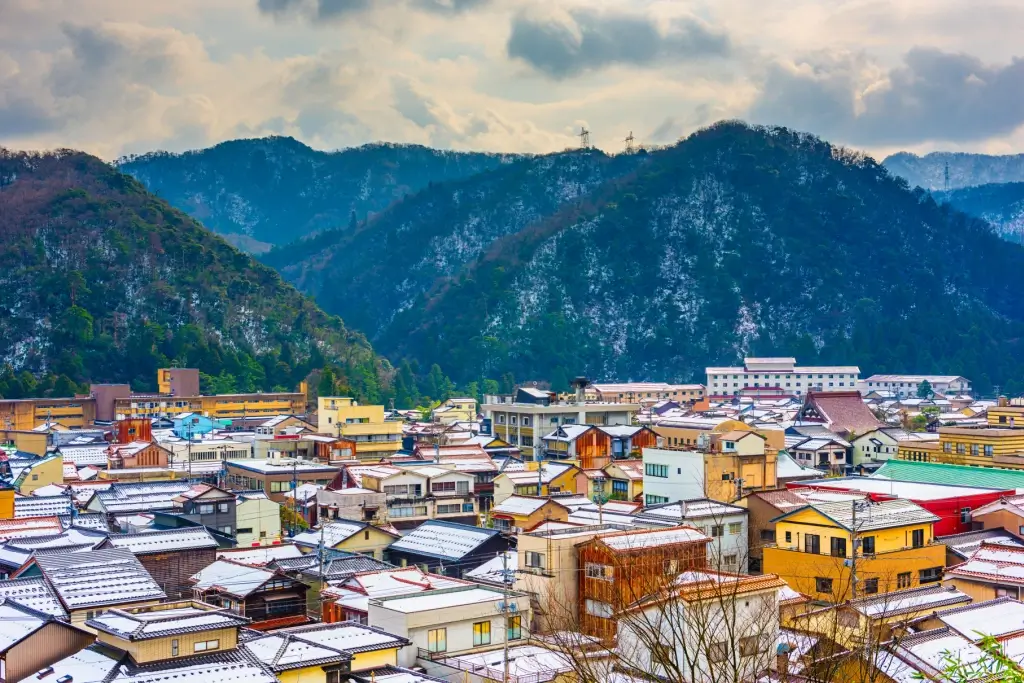
Furthermore, the town also has a long history of craftsmanship, particularly in Yamanaka lacquerware, which has been crafted here for over 400 years. Visitors can also explore the local shops, try their hand at woodturning, or visit the Urushiza museum to learn about lacquerware-making.
Mount Haku
Mount Haku, also called Hakusan, is one of Japan’s three most revered mountains, along with Mount Fuji and Mount Tate. Located on the border of Ishikawa, Gifu, and Fukui prefectures, this majestic mountain rises to 8,865 ft. Its name means white mountain, inspired by snow-covered peaks that shine throughout winter and early summer. It is a dormant volcano that hasn’t erupted since 1659. Yet, its ancient volcanic activity shaped the surrounding landscapes over 300,000 years ago. Mount Haku is home to rich wildlife, including 40 animal species and alpine plants.
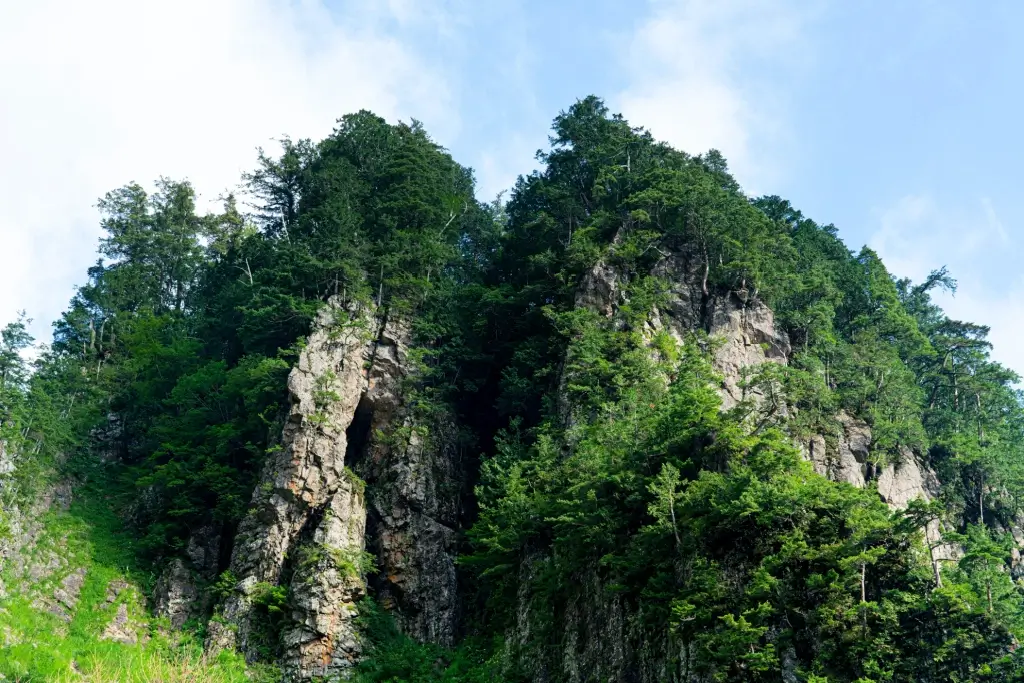
Hiking Hakusan is a cherished activity, especially between June and October when the trails are open for climbing. The journey usually takes around ten hours and is a round trip. Along the way, hikers can rest at Murodo, a mountain lodge located at 8,038 ft. It provides basic accommodations, shops, and dining. From there, it’s a shorter hike to reach the peak, where breathtaking views of the Sea of Japan and Northern Alps await. For those who want to explore more, a loop trail passes by beautiful crater lakes.
Kutani Yaki Art Museum
This museum exhibits Kutani yaki, a traditional form of Japanese porcelain famous for its bold colors and intricate designs. It is located in the spectacular Ko Kutani no Mori Park, making it an excellent spot for anyone who loves nature and art. You’ll find diverse Kutani yaki pieces, each showcasing skill and creativity.
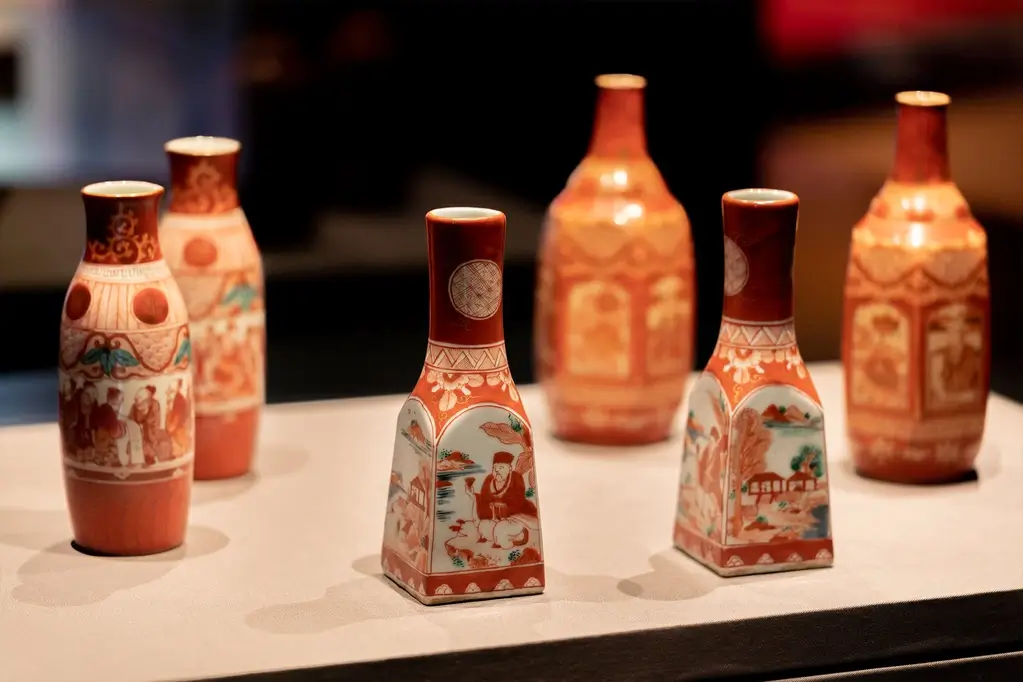
Moreover, you can enjoy many activities here. There are hands-on workshops where you can try painting your piece of Kutani yaki, and special exhibitions showcase the finest works of this porcelain. There’s also a cozy cafe where you can sip tea from lovely Kutani yaki cups while enjoying views of the tranquil garden. You can pick up some postcards, books, and beautifully crafted Kutani yaki tableware to take home at the museum shop.
Why should I visit Ishikawa Prefecture?
Ishikawa Prefecture offers a perfect mix of natural beauty, rich history, and cultural heritages, so why not choose it as your next destination? In this unique prefecture, you can enjoy peaceful hot springs, explore historic cities like Kanazawa, and admire traditional crafts like Kutani ceramics and gold leaf. From the stunning landscapes to relaxation and culture, there’s a sense of discovery at every turn. What would you like to explore first in Ishikawa? Leave a comment below!

